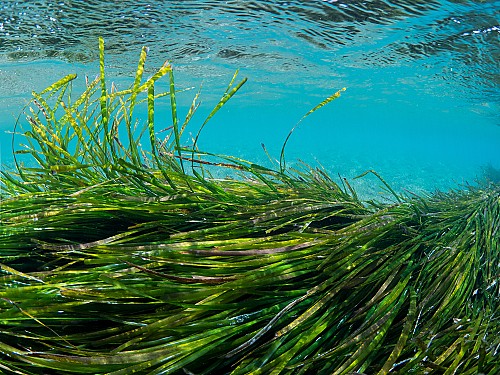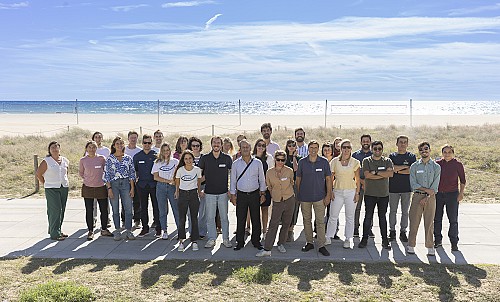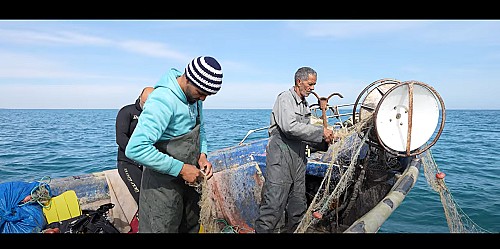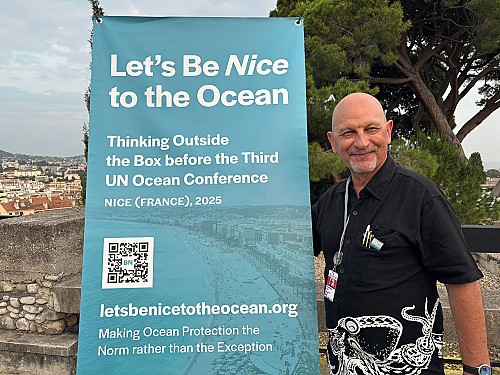Environmental NGOs meet with the Spanish government at UN Ocean Conference to push for marine protection in Spain
Published 11.06.2025
Share
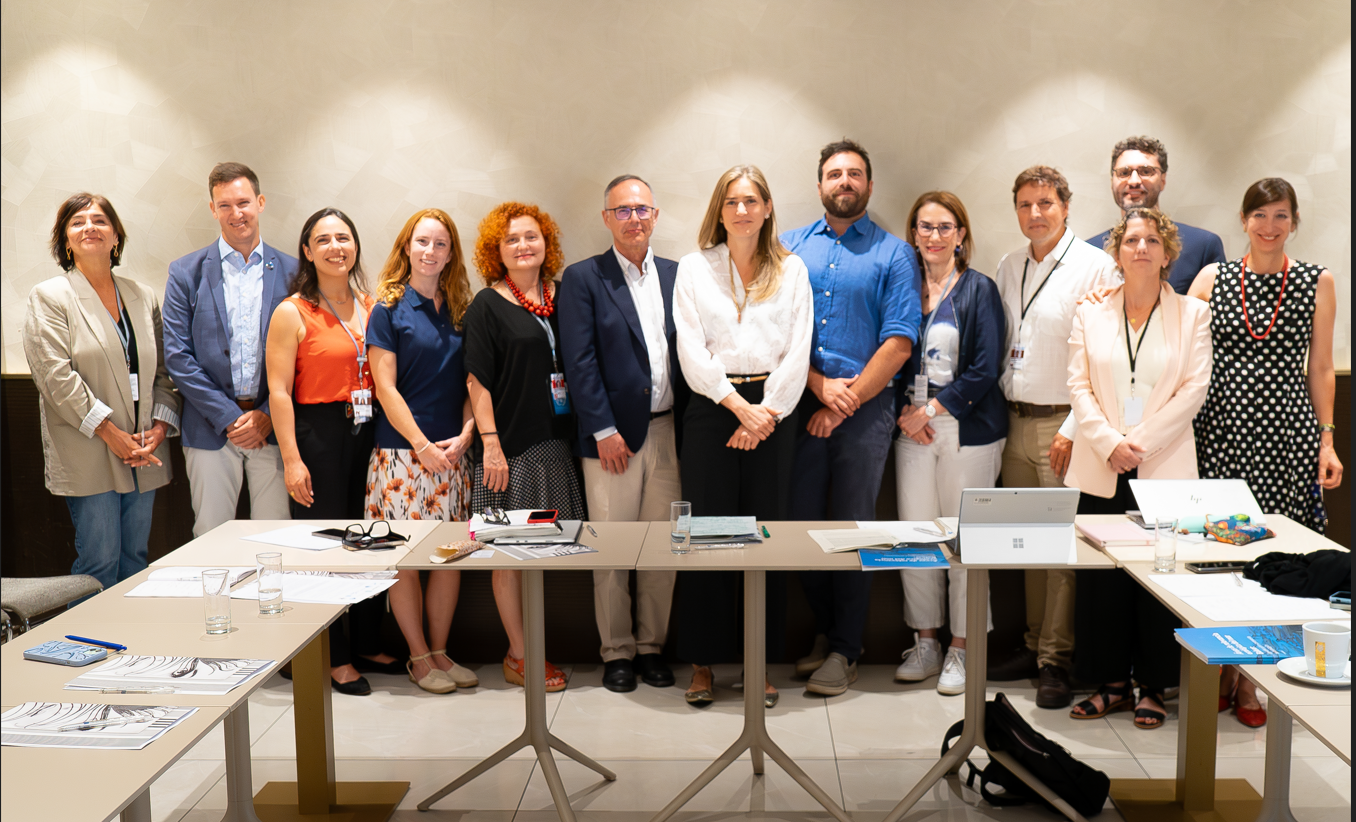
Representatives of environmental organisations held a meeting with the Third Deputy Prime Minister of the Spanish government and Minister for Ecological Transition and the Demographic Challenge (MITECO), Sara Aagesen. The meeting took place in the framework of the third United Nations Ocean Conference (UNOC3). The meeting was convened by various MED30 project organisations, including Oceana, OceanCare, ClientEarth, Marilles Foundation, MedSea Alliance, and representatives of the Let's Be Nice to the Ocean campaign.
During the meeting, the NGOs discussed with Deputy Prime Minister Aagesen seven key issues to advance marine conservation and the protection of coastal communities:
- Implement the International Oceans Treaty, ratified by Spain, and detailing the steps planned by the Executive for its effective application.
- Comply with the 10x30 objective of strict protection, establishing concrete measures and clear deadlines to increase the strictly protected area, which currently only covers 0.014% of Spain's marine territory.
- Approve and implement the pending management plans for the marine protected areas (MPAs) of the Natura 2000 Network, which ensure effective conservation objectives and measures to ensure the protection of the sites.
- Implement mandatory measures to reduce the speed of boats in the management plan for the Mediterranean Cetacean Migration Corridor MPA to reduce collisions with fin whales and sperm whales, the main cause of mortality of these large whales in this area. In relation to this issue, a letter was submitted to the Third Deputy Prime Minister, backed by 60 scientists and legal experts in the field, requesting the inclusion of this measure in the aforementioned management plan.
- Classify the fin whale and the sperm whale as endangered species, in line with the criteria of the International Union for the Conservation of Nature and Spain's international commitments.
- Continue to make progress in the declaration of new MPAs, to reach the 30x30 objective, including the proposed MPA for sperm whales in the north of Menorca.
During the meeting, Aagesen stated the government's intention to identify and incorporate strict protection areas in the new management plans announced at UNOC3. She also guaranteed the continuity of the working group with all interested parties for the discussion of measures to reduce the speed of boats in the Cetacean Migration Corridor.
The organisations welcomed the incorporation of Spain into the High Ambition Coalition for a Silent Ocean, promoted by the governments of Canada and Panama with the support of several international NGOs. The Coalition aims to work together to mitigate the growing threat of underwater noise and restore the natural soundscape of the ocean. It is the first global policy coalition dedicated to reducing ocean noise pollution, which has proven negative effects on marine life.
This dialogue between civil society and public administration represents an essential step to strengthen Spain's leadership in the international protection of the ocean, in the defence of the Mediterranean as a strategic ecosystem at risk, and in the transition towards a sustainable blue economy model. The meeting with the Deputy Prime Minister is a continuation of the 30x30 Mediterranean Agreement, presented last year to the government, which aims to achieve effective protection of 30% of the Spanish Mediterranean by 2030, with at least 10% under strict protection.
--
Aniol Esteban, Marilles Foundation: ‘The Balearic Sea has an extensive network of protected marine areas and a fleet that, having significantly reduced its capacity and effort, is achieving record catches and profits. The combination of marine protected areas and efficient fisheries management is yielding results and forging the foundations of a successful model that we hope will spread to the rest of the Spanish and Mediterranean coast. There is still much to be done, we need a greater commitment from the Spanish government to approve truly effective management plans, to make progress in the strict protection of our seas and, above all, in funding. Investing in our seas is the best investment but the current financial commitment from both the public and private sectors is still negligible.’
Pablo Rodriguez, MedSea Alliance: ‘We want to achieve a Mediterranean with 30% effective protection and 10% strict protection by 2030. Currently, only 8% of the surface area of this sea has some kind of protection. To change these numbers, Spain must lead international efforts in marine protection, making ambitious commitments and actively participating in cooperation between the two shores of the Mediterranean Sea.’
Michael Sealey, Oceana: ‘Spain must urgently implement measures to turn its marine protected areas from paper parks into reality. Strictly increasing the protected area and removing destructive fishing gear is essential to restore habitats and species, as well as to increase the resilience of ecosystems in the face of the climate crisis.’
Carlos Bravo, OceanCare: ‘Ship strikes are the leading cause of human-induced death for great whales in areas of high shipping traffic where vessels travel at speeds well above 10 knots/hour, as is the case in the Mediterranean Cetacean Migration Corridor. If we really want to avoid the extinction of fin whales and sperm whales in this marine protected area while making shipping more sustainable, the only effective measure is to include a mandatory vessel speed reduction measure in the management plan currently being developed by MITECO.’
Pierre Cannet, ClientEarth: ‘This meeting with the Third Deputy Prime Minister and civil society organisations during UNOC3 is a clear signal that the Spanish government recognises the fundamental role of civil society in the ocean agenda. This conference should not just be about reiterating past commitments, but should be an opportunity to move forward on effective implementation of laws for the benefit of people and the ocean.’

